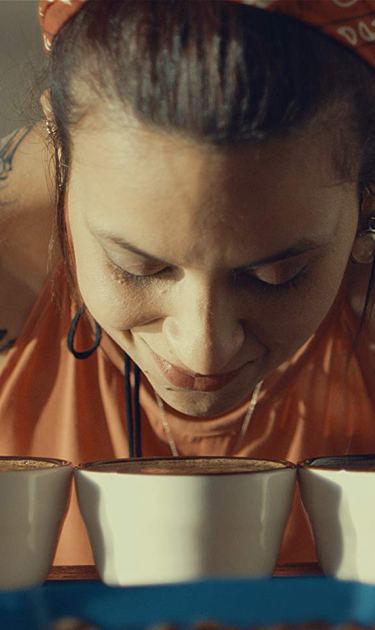A family living in Central America is pushed to the brink of bankruptcy in Café con sabor a mi tierra (Blood, Passion & Coffee), Honduras’ official entry for the 92nd annual Academy Awards. Directed by Carlos Membreño (La Jaula), the film considers the sacrifice it takes to operate and sustain a successful plantation for coffee, a cash crop with a history in Honduras dating back to the late 18th century.
Blood, Passion & Coffee is only the second film Honduras has ever submitted for consideration for an Oscar nomination. The first was two years ago for historical drama Morazán about Central American politician Francisco Morazán. Ultimately, it did not earn a nomination. That will likely be the case again this year with Blood, Passion & Coffee, a beautifully photographed drama that doesn’t take advantage of its locations to tell an intriguing enough narrative about its coffee growers.
Blood, Passion & Coffee is only the second film Honduras has ever submitted for consideration for an Oscar nomination.
The film follows the Matute family, who are representative of Indigenous communities in Central America who, according to a 2014 New York Times article, were affected a few years ago by a “plant-choking fungus called coffee rust, or la roya, [that] swept across Central America, withering trees and slashing production everywhere.” From the same article, it’s estimated that four million people in Central America and Southern Mexico relied on coffee to make a living.
When Don Napo (Enrique Romero), the patriarch of the Matute family, notices all his coffee plants have been damaged by the fungus, the stress lands him in the hospital after a pair of heart attacks. Through a flashback, we watch Don Napo tell his oldest son Roger that he doesn’t want him to grow up and become a coffee farmer. After this scene, it’s obvious the exact storytelling decision Membreño is going to make.

Once the business is left in the hands of Roger (Carlos Alberto Moncada), his mother, Marcelina (Ethel Flores), and Roger’s siblings, Oscar (Enrique Barrientos) and Mirna (Andrea Chirinos), who are studying for careers outside of farming, the family must decide the best way to stay afloat. When Roger meets Nancy (Alejandra Arias), who he later finds out is a coffee cupper (someone who tastes and grades coffee) and the daughter of a coffee farmer, the Matute family turn to them for support in starting up a new company.
The relationship between Roger and Nancy, unfortunately, is lacking in depth. Membreño would like audiences to believe their love for each other arose partially because of destiny, but even if that were true, nothing that happens during the film – besides Nancy fawning over him and continuously petting his bearded face – is evidence enough that there is a real connection. The script skirts the idea that Roger and Nancy’s dynamic is rooted in their families’ shared passion for coffee, but Membreño never gets to the core of the industry itself to make it feel tangible. Whether that much-needed context was established in the fields with Roger and his family or operating a coffee press with Nancy, the screenplay would’ve benefited immensely if Membreño allowed a more comprehensive look at just how much work it takes to make a good cup of coffee.
What Membreño gets right, however, are all of the scenes he shoots outdoors. The gorgeous Honduran landscape tells its own story as we watch Roger and other workers tend to the crops and ride horses through the lush scenery. With so much of Blood, Passion & Coffee taking place under the sky, Membreño uses the natural light, which creates more sun-kissed cinematography and lovely imagery of the region. There are moments when Membreño overdoes the slow-motion shots followed by fast edits, but none of those minor decisions really take away from the film’s picturesque compositions.

Membreño uses the natural light, which creates more sun-kissed cinematography and lovely imagery of the region.
Along with its impressive photography by cinematographer Herson Geovany Ortega (La Jaula), another highlight of Blood, Passion & Coffee is its use of music in Spanish. While much of the score is fairly conventional, songs like “Mi Historia,” “Amor Naciente” and “Con Aroma a Mi Tierra” by Oscar Ortega and others like “Canción de Mi Padre” and “Si Tú Ya No Estas” by Mario Raudales, draw out some authentic emotion with every strum of the guitar.
Without its music, most of that emotion behind Blood, Passion & Coffee feels forced and melodramatic. A blatant example of this comes when Marcelina is talking to two of her employees about how they have to continue fighting and not lose hope. She then covers the letters C and A with her fingers in the word “café” printed on a document, so she can reemphasize their need to keep their faith (fe). It’s these kinds of heavy-handed and overly sentimental scenes that make Blood, Passion & Coffee a bit too bitter to fully enjoy.
Café con sabor a mi tierra is screening on November 27 in Los Angeles as part of Hola Mexico Film Festival’s Latin American Nomination Screenings.





